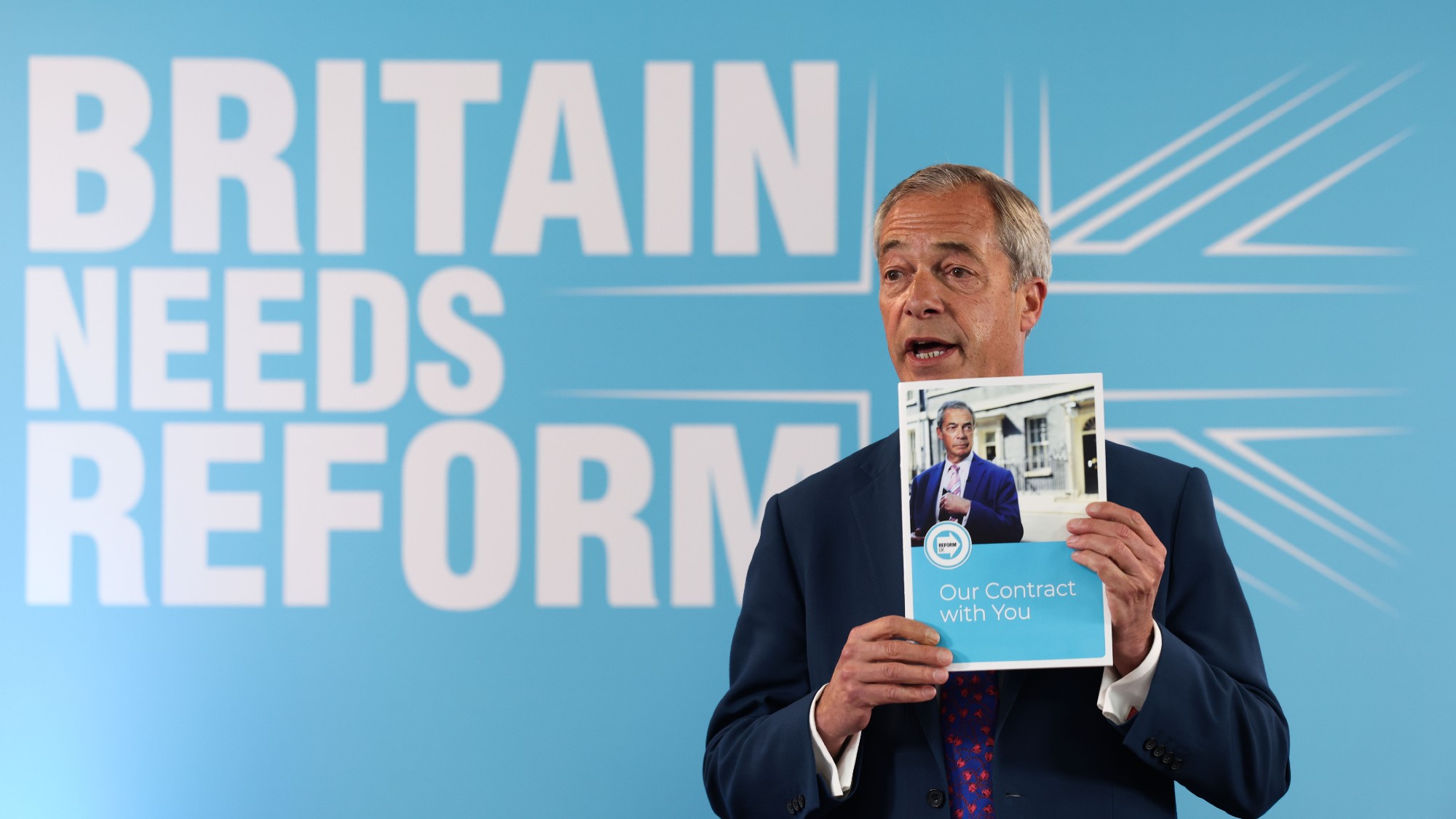The Five Biggest Challenges Facing Reform UK

Table of Contents
Internal Divisions and Leadership Stability
One of the most pressing challenges facing Reform UK is the persistent issue of internal divisions and leadership stability. The party has experienced several high-profile departures and disagreements since its inception, creating an image of instability and fracturing its internal cohesion. These power struggles often play out publicly, undermining the party's credibility and hindering its ability to present a united front. The lack of a clear succession plan further exacerbates this problem, leaving the party vulnerable to internal conflict should its current leadership change.
- Lack of clear succession plan: The absence of a designated successor creates uncertainty and potential for infighting.
- Differing opinions on key policy issues: Disagreements over Brexit, economic policy, and other core issues have led to public disagreements and internal friction.
- Internal disputes affecting public image: Public spats damage the party's image and make it difficult to attract wider support.
- Potential for further splits and fragmentation: The risk of further factions breaking away remains a significant threat to the party's long-term viability.
Gaining Mainstream Acceptance and Broadening Appeal
Reform UK struggles to move beyond its core support base. Many perceive the party as overly focused on specific issues, potentially alienating a broader electorate. Effectively broadening its appeal requires a carefully crafted strategy that addresses these perceptions while retaining its core values. This necessitates a delicate balance between maintaining its identity and reaching out to a more diverse range of voters.
- Perception as an extremist party: This perception limits the party's ability to attract centrist voters.
- Limited appeal beyond specific demographic groups: The party's message primarily resonates with a particular segment of the population.
- Difficulties in moderating their message without alienating core supporters: Finding a balance between appealing to broader demographics and maintaining its core identity is a significant challenge.
- Need for more effective communication strategies: Clearer and more nuanced messaging is vital to reach a wider audience.
Funding and Resource Constraints
Financial constraints significantly impact Reform UK's ability to compete effectively. Unlike established parties with access to substantial funding streams, Reform UK relies heavily on donations and grassroots support, restricting its resources for campaigning, outreach, and staffing. This lack of funding hampers its ability to reach voters effectively and build a robust organizational infrastructure.
- Limited access to traditional sources of funding: Compared to established parties, Reform UK has limited access to mainstream funding channels.
- Dependence on donations and grassroots support: This makes the party vulnerable to fluctuations in funding.
- Constraints on staffing and infrastructure: Lack of funding limits the party's ability to hire experienced staff and establish a strong organizational structure.
- Challenges in competing with better-funded parties: The disparity in resources creates an uneven playing field in political campaigning.
Electoral System and Strategic Weaknesses
The UK's first-past-the-post electoral system presents a considerable hurdle for Reform UK. This system favors larger established parties, making it difficult for smaller parties to gain widespread representation. Reform UK's past electoral performance highlights these difficulties. A more effective electoral strategy focusing on targeted constituencies and improved campaign organization is crucial for future success.
- First-past-the-post system disadvantages smaller parties: This system makes it difficult for Reform UK to translate its support into seats.
- Difficulties in securing widespread representation: The party struggles to gain parliamentary representation in line with its level of public support.
- Need for a more effective campaign strategy: A refined strategy targeting key demographics and constituencies is vital.
- Ineffective targeting of key electoral districts: Focusing resources strategically on winnable seats is crucial for future electoral success.
Defining a Clear and Consistent Policy Agenda
A clear and consistent policy platform is essential for any political party's success. Reform UK faces challenges in presenting a cohesive and easily understandable policy agenda. Ambiguity or inconsistency in policy positions can create confusion among voters and hinder public trust. Developing well-defined policies on key issues is crucial for gaining credibility and wider support.
- Ambiguity or inconsistency in policy positions: Inconsistent messaging can confuse voters and damage the party's credibility.
- Lack of detailed proposals on key issues: Vague policy proposals fail to convince voters of the party's competence.
- Public skepticism towards certain policy proposals: Some of the party's policies face significant public opposition.
- Need for a more cohesive and well-defined agenda: A clear and comprehensive policy platform is essential for building public trust and attracting wider support.
Conclusion: Overcoming the Obstacles: The Future of Reform UK
The challenges facing Reform UK are multifaceted and significant. Internal divisions, limited mainstream appeal, funding constraints, electoral system disadvantages, and a need for a clearer policy agenda all pose substantial hurdles. However, addressing these issues is vital for the party's future prospects. Understanding these challenges facing Reform UK is crucial for anyone interested in the future of British politics. Continue the discussion by sharing your thoughts in the comments below.

Featured Posts
-
 The 2024 Election And Beyond Lessons From Florida And Wisconsin Voter Turnout
May 03, 2025
The 2024 Election And Beyond Lessons From Florida And Wisconsin Voter Turnout
May 03, 2025 -
 Christina Aguilera Public Condemns Fans Unwanted Kiss
May 03, 2025
Christina Aguilera Public Condemns Fans Unwanted Kiss
May 03, 2025 -
 Five Factors Jeopardizing Reform Uks Success
May 03, 2025
Five Factors Jeopardizing Reform Uks Success
May 03, 2025 -
 Fortnite Item Shop Update Easier Navigation And More
May 03, 2025
Fortnite Item Shop Update Easier Navigation And More
May 03, 2025 -
 The Impact Of Wildfire Betting On The Los Angeles Community
May 03, 2025
The Impact Of Wildfire Betting On The Los Angeles Community
May 03, 2025
